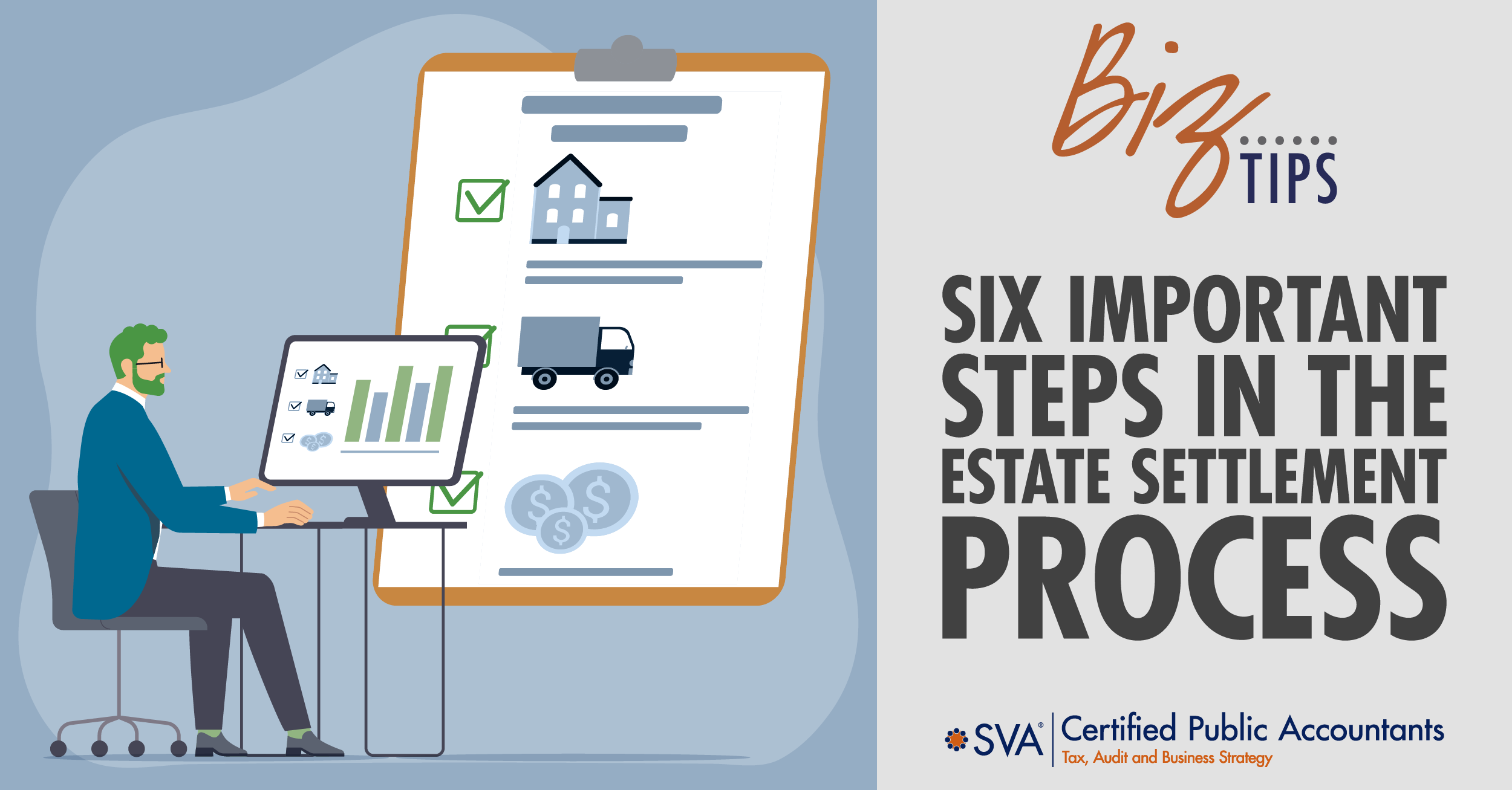| Highlights: |
- Breaks down the six core steps in settling an estate after a loved one’s passing, from reviewing the will to final distribution of assets.
- Emphasizes securing property, appraising valuable assets, and managing tax filings as essential tasks that must be completed before distribution.
- Notes that estate settlement often takes a year or more, and careful planning and support from trusted advisors can ease administrative and emotional burdens.
|
When someone you love passes away, there’s a lot to deal with emotionally—and there’s also a long list of administrative tasks that can’t be avoided.
Settling an estate is part of the process, and while no one really wants to think about paperwork and court forms during a time of grief, having a clear plan (and a good support team) can make things a bit easier.
6 Estate Settlement Tips
At SVA, we’ve walked through this process with many families. While every estate is different, here are six things we think everyone should understand about what happens when it’s time to settle an estate.
(Download Video Transcript)
1. Start With the Will - and Possibly Probate
One of the first steps is reviewing and filing the will. If probate is required, the court needs to officially appoint a personal representative (sometimes called an executor). This person is in charge of overseeing the estate and making sure everything is handled properly. Depending on the state and the complexity of the estate, this can be a fairly straightforward task—or one that requires outside support.
2. Protect the Property Right Away
Before anything can be distributed or sold, it’s important to secure all the assets. This might include homes, vehicles, artwork, jewelry, and important documents. Locking up a home, keeping an eye on valuable items, and making sure paperwork is stored safely help protect what the deceased spent a lifetime building.
3. Some Assets May Need to Be Appraised
Not everything in an estate needs to be appraised, but any item with significant value—real estate, collectibles, or a business interest, for example—probably should be. These appraisals can help determine if estate taxes will be owed and make sure assets are properly valued for distribution.
4. Taxes Are Part of the Process
Taxes don’t stop when someone passes. In fact, there may be several returns that need to be filed:
- The final individual income tax return (Form 1040)
- An estate income tax return (Form 1041)
- A federal estate tax return (Form 706), if the estate exceeds the exemption threshold
Depending on the size and structure of the estate, you might also have to deal with state taxes. This is where having an advisor in your corner can help keep things on track.
5. Distribute Assets After Debts and Taxes Are Handled
Heirs and beneficiaries typically rely on the estate to be settled promptly. But it’s important not to rush. All debts, taxes, and final expenses need to be handled first. Once that’s done and probate (if required) is closed, assets can be distributed according to the will or trust.
6. It Can Take Time - Sometimes Years
This isn’t a quick process. In many cases, settling an estate can take a year or more, especially if the estate is complex or there are disagreements among heirs. That’s why it’s a good idea to think ahead when setting up your estate plan. Choosing a trusted personal representative or even a third-party advisor can make things easier for your loved ones later on.
Need Some Help?
Estate settlement isn’t just about checking boxes—it’s about supporting families through a hard time while making sure everything is handled the right way. At SVA, we help with everything from asset inventory to tax filings to the final distribution.
Whether you're planning ahead or currently navigating the process, we're here to help guide you every step of the way.
© 2025 SVA Certified Public Accountants

